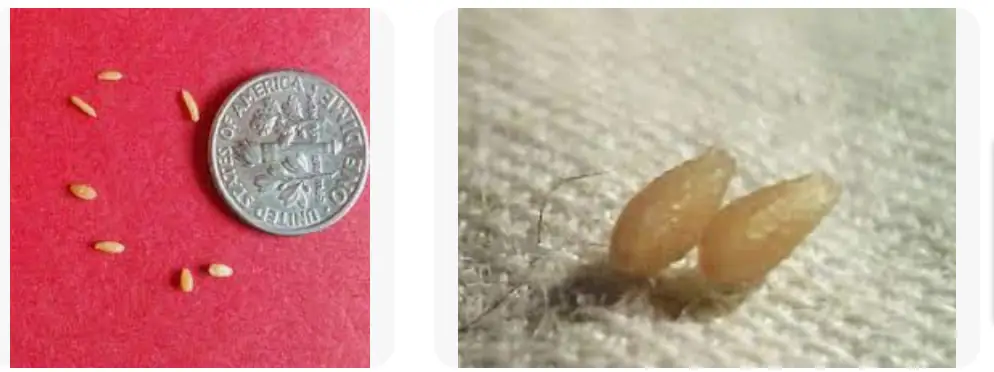Last updated on February 25th, 2025 at 07:21 am
Tapeworm eggs in your carpet are more than just a nuisance; they’re a potential health hazard for your family and pets. Discover how long these microscopic threats can survive in your home, how to effectively eliminate them, and, most importantly, how to prevent future infestations. This comprehensive guide answers your frequently asked questions and provides expert-backed strategies to safeguard your living space.
Understanding the Threat: Tapeworm Eggs in Carpet
How Long Can Tapeworm Eggs Live in Carpets?
Tapeworm eggs are notoriously resilient. In carpets, they can survive for two weeks to several months, depending on environmental factors. This extended viability makes thorough cleaning and preventative measures crucial.
What Conditions Help Tapeworm Eggs Survive in Carpet?
- Humidity: Moderate to high humidity levels create a favorable environment.
- Temperature: Temperatures between 70°F and 85°F (21°C – 29°C) provide optimal conditions.
- Shelter: Carpet fibers offer protection from direct sunlight and cleaning efforts.
Are Tapeworm Eggs Visible to the Naked Eye?
No, tapeworm eggs are microscopic and invisible without specialized equipment. This makes detection challenging and emphasizes the need for proactive cleaning.

Eliminating Tapeworm Eggs: A Step-by-Step Guide
1. Vacuuming: Your First Line of Defense
- HEPA Filter is Essential: Use a vacuum cleaner equipped with a HEPA filter to capture eggs and larvae effectively.
- Thorough Coverage: Vacuum all carpeted areas, paying close attention to edges, corners, under furniture, and along baseboards.
- Frequency: Vacuum frequently, especially if you have pets. Learn more about How Often Should You Vacuum?
2. Steam Cleaning: Heat is Key
- High Temperature: Ensure your steam cleaner reaches a high enough temperature to kill tapeworm eggs (ideally above 170°F or 77°C).
- Slow and Steady: Move the steam cleaner slowly over the carpet to allow sufficient heat penetration.
- Professional Option: Consider professional steam cleaning for a more thorough treatment. If you’re unsure about DIY steam cleaning, read our guide on Carpet Extractor vs. Carpet Cleaner: Which One to Choose?. Also you can read How Hot Are Carpet Steam Cleaners? [Explained] to have more idea.
3. Disinfecting Solutions: Choosing the Right Products
- Effective Options: Look for carpet disinfectants containing ingredients like benzalkonium chloride or pine oil.
- Ammonia-Based Cleaners: Can be effective, but use with caution and ensure proper ventilation. For more on using household cleaners safely, see Can You Use The Pink Stuff on Carpets? [Explained].
- Carpet-Safe Formulas: Always test the product on a small, inconspicuous area first to prevent discoloration or damage. Check out our article on Will Vinegar Ruin Carpet? [Explained] for more on natural cleaning methods.
4. Treating Washable Items
- Hot Water Wash: Wash rugs, bedding, and other washable items in hot water (at least 130°F or 54°C) with detergent and bleach (if safe for the fabric).
- High-Heat Drying: Tumble dry on high heat to further kill any remaining eggs.
5. When to Call the Professionals
- Severe Infestation: If you suspect a heavy infestation or are uncomfortable handling the cleaning process yourself, contact a professional carpet cleaner or pest control service.
- Recurring Issues: If tapeworm infestations are a recurring problem, professional help can identify the underlying cause and implement a long-term solution.
Prevention is Paramount: Stopping Tapeworms Before They Start
Pet Care: The Foundation of Prevention
- Regular Deworming: Work with your veterinarian to establish a regular deworming schedule for your pets. For more on pet health, visit the American Animal Hospital Association.
- Flea Control: Fleas can transmit tapeworms, so consistent flea prevention is crucial.
- Prompt Veterinary Care: If you suspect your pet has tapeworms, seek immediate veterinary treatment.
Home Hygiene: Maintaining a Clean Environment
- Prompt Waste Disposal: Clean up pet feces immediately and dispose of them properly.
- Regular Vacuuming: Vacuum carpets and upholstery frequently. Learn more about How Often Should You Vacuum?
- Wash Pet Bedding: Wash pet bedding regularly in hot water.
Natural Remedies: Proceed with Caution
- Diatomaceous Earth: Food grade diatomaceous earth can be sprinkled on carpets and left for a few days before vacuuming. However, it is not as effective as chemical treatments.
- Vinegar: While vinegar has some disinfecting properties, its effectiveness against tapeworm eggs is not well-documented.
- Essential Oils: Some essential oils (like tea tree or eucalyptus) may have antiparasitic properties, but use them with caution around pets and children. Dilute properly and test on a small area first. For more on using essential oils safely, check out How to Get Rid of Carpet Beetles With Essential Oils? and Are Essential Oils Safe For Carpet Cleaner? [Explained].
Important Note: Natural remedies should be used as a supplement to, not a replacement for, thorough cleaning and professional veterinary care.
Addressing Your Concerns: FAQs
- Can humans get tapeworms from carpet? Yes, although it’s more common in children. Ingestion of tapeworm eggs can lead to infection. For more information, visit the Centers for Disease Control and Prevention.
- What are the symptoms of tapeworm infection in humans? Symptoms can include nausea, diarrhea, abdominal pain, and weight loss.
- How do I know if my pet has tapeworms? Look for rice-like segments in your pet’s feces or around their anus. Other symptoms include scratching their rear end, vomiting, and weight loss.
- Is it safe to use bleach on my carpet to kill tapeworm eggs? Bleach can damage or discolor carpets. It’s best to use carpet-safe disinfectants.
- How often should I deworm my pet? Consult your veterinarian for a deworming schedule based on your pet’s lifestyle and risk factors.
Comparative Table: Cleaning Agent Efficacy
| Cleaning Agent | Efficacy Against Tapeworm Eggs | Considerations |
|---|---|---|
| Ammonia-based cleaners | High | Use with caution, ensure ventilation |
| Benzalkonium chloride | High | Follow product instructions carefully |
| Vinegar | Limited/Varies | Not a primary solution |
| Steam cleaning | Moderate to High | Requires high temperature |
| Essential oils | Limited/Varies | Use with caution around pets and children, dilute first |
| Food Grade Diatomaceous Earth | Moderate | Use a dust mask when applying, may require multiple applications |
Conclusion
Dealing with tapeworm eggs in your carpet requires a multi-pronged approach: thorough cleaning, preventative measures, and consistent pet care. By following the steps outlined in this guide, you can create a healthier and safer living environment for your family and pets. If you have any concerns or suspect a severe infestation, don’t hesitate to contact a professional.


